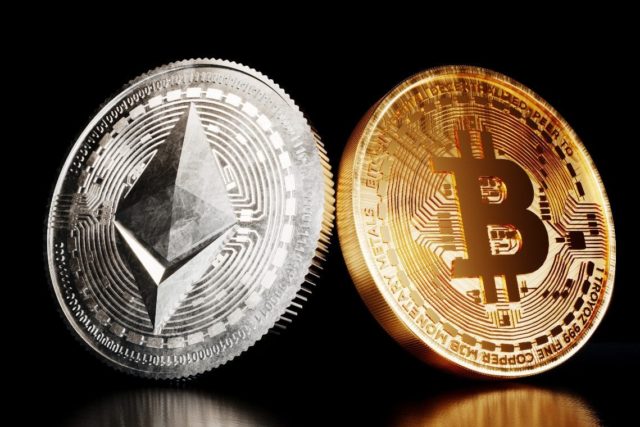The federal government released a survey in which it presents the main economic measures approved over the last four years, such as record investments and concessions. The balance sheet indicates that, from 2019 until last Thursday (22), there were 180 auctions and projects, BRL 940.9 billion in investment expectations and BRL 184.2 billion in grants and bonuses.
The government also highlights the legal framework for sanitation, the electricity sector framework, voluntary deposits and the regulatory framework for railroads, among 28 projects that, together, allow for a reduction in expenses of around R$ 403 billion per year.
For FGV professor Gesner Oliveira, measures such as those approved over the last few years are important precisely for the competitiveness of the economy, to attract investment and that, in his assessment, it is necessary that initiatives of this type continue.
The professor mainly emphasizes the legal framework for sanitation and railways, since both attract great investment.
For him, investment in infrastructure is one of the most important for sustainable economic growth and he also considers that there should not be an antagonism between public and private investment.
“Investment public and private are not antagonistic, the evidence suggests that they are complementary, there is a correlation between the two. For the private sector to grow, a certain volume of public investment is needed… The government should focus on providing essential investments and a stable, secure and transparent business environment for private investors to make the necessary investments”, says Oliveira.
As a result of the reforms and measures already implemented, the government emphasizes the reduction in the cost of doing business in Brazil. “A set of charges and bureaucracies that limit the country’s growth consumed BRL 1.5 trillion per year from companies”, says the document, based on BCG figures for 2019.
The government also talks about a recovery of the country’s investment rate to the level of 2015, at 18.8% of GDP, after having reached 14.6% in the first quarter of 2018. The numbers correspond to the accumulated result of the last four quarters.
The investment rate in Brazil is calculated by the proportion between the Gross Fixed Capital Formation (GFCF) and the Gross Domestic Product (GDP).
According to calculations by the Economic Policy Secretariat of the Ministry of Economy, each percentage point more in the investment rate means 770,000 new jobs and an increase of R$ 305 in the average GDP per capita.
See the main initiatives listed by the government:
Concessions:
In four years, the government highlighted that 180 auctions and projects were held, R$ 940.9 billion in investment expectations and R$ 184.2 billion in grants and bonuses.
As a highlight, the auction of the pre-salt onerous assignment surplus was considered by the Ministry of Economy, which moved R$ 434 billion and the privatization of Eletrobras.
For the first quarter of 2023, auctions and projects of 45 assets are expected and an expected investment of around BRL 95.2 billion, according to the report.
Regulatory Frameworks:
Sanitation legal framework
The legal framework for sanitation (Law 14,026/20) aims to ensure the universalization of water and sewage services for the population. Sanctioned in July 2020, the report mentions that the measure has already led to 12 auctions and generated around BRL 48.2 billion in private investments, BRL 29.47 billion in grants for subnational entities and BRL 17.38 million for people beneficiaries.
In Brazil, currently, about 100 million people do not have access to sewage collection. In this context, one of the main goals of the framework is to achieve, by 2033, 90% of sewage collection and 99% of treated water.
cabotage law
In order to bring greater competitiveness and productivity to the maritime transport sector, the law reduced the rate on long-cost navigation from 25% to 8%.
Despite the extensive Brazilian coastline, cabotage today is responsible for 11% of the total handled.
new gas market
Sanctioned in 2020, the milestone made possible a Cessation Commitment Term (TCC) from Petrobras, resulting in the release of access to gas pipelines and all essential infrastructure for the sector.
According to the government, in practice, the market has authorization for natural gas transport activities, free competition and the prospect of greater competitiveness in the industrial sector.
Telecommunications legal framework
The report shows that the expansion of fixed and mobile broadband throughout the country can generate positive impacts on the GDP, therefore, the project aims precisely at greater dissemination of access for Brazilians.
According to the International Telecommunications Union (ITU), each 10% increase in broadband penetration can raise GDP by 1.4 pp
The text also highlights the 5G auction, which raised BRL 47.2 billion, in addition to the expected investments. The perspective is that in 2022 the internet system will already be available in all capitals of the country and, in 2028, in all cities with more than 30 thousand inhabitants.
railroad landmark
The framework intends to allow expansion, modernization and optimization of the railway network and infrastructure. Currently, the segment represents 20% of the load matrix. The project’s goal is to reach 40% by 2035.
From this, an authorization regime was established for the construction of new lines, aiming at increasing the supply of railways and competition in the sector.
Opening of the refining market
The government presents the measure in its report as being the “biggest structural change since the existence of the market”. According to the text, it stimulates competition in the domestic market, attracting new investments and fair and beneficial prices for consumers.
Debureaucratization:
On measures to reduce bureaucracy in the economy, the report mentions the Economic Freedom Law and the Business Environment Law.
According to the Ministry of Economy, both provide free market guarantees, simplify the opening and operation of companies in the country, increase protection for minority investors and make it easier and more predictable for new companies to enter the market.
In addition, measures to democratize access to credit are also listed, such as the Crédito Brasil Empreendedor program, which serves Individual Micro-entrepreneurs (MEI), micro-entrepreneurs and Small and Medium-sized Companies (SMEs).
Innovation and technology:
Finally, in terms of innovation and technology, the report presents the Legal Framework for Startups, which regulates the sector in the country and the instant payment system, Pix.
According to the report, the system provides financial inclusion, increased competition and encourages fintechs and big techs to enter the market.
Source: CNN Brasil
A journalist with over 7 years of experience in the news industry, currently working at World Stock Market as an author for the Entertainment section and also contributing to the Economics or finance section on a part-time basis. Has a passion for Entertainment and fashion topics, and has put in a lot of research and effort to provide accurate information to readers.







